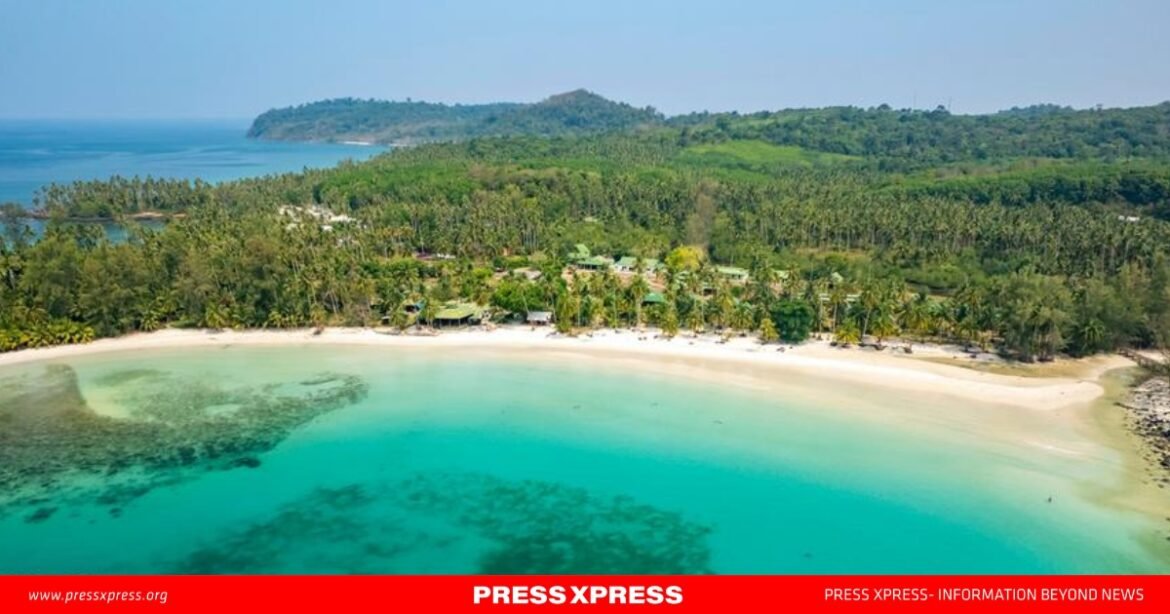As Thailand and Cambodia reignite diplomatic tensions over the island of Koh Kood, Cambodia is pressing its case on historical grounds, arguing that its territorial claims were marginalized during the colonial era. Beyond sovereignty, the dispute highlights deeper questions of historical justice and energy equity in Southeast Asia.
The island, located in the Gulf of Thailand, is suspected to sit atop vast reserves of natural gas and oil, making it a focal point not just for sovereignty but for control over valuable energy resources. While both countries have agreed to share the profits in principle, Cambodia contends that its territorial rights deserve clearer recognition under international law.
A Legacy of Colonial Ambiguity
Cambodia’s claim rests on unresolved issues dating back to the colonial period when the Franco-Siamese Treaty of 1907 established territorial boundaries between French-controlled Cambodia and Siam (now Thailand). While the treaty settled land borders, it left maritime boundaries vague — a gap Cambodia argues Thailand has exploited.
“For too long, historical complexities have been weaponized to justify territorial overreach,” said Keo Chhaya, a Cambodian historian specializing in Southeast Asian border conflicts. “The treaty was never designed to address maritime sovereignty, which Cambodia rightly argues was left unaddressed.”
After the dissolution of French Indochina, Cambodia reasserted claims to maritime areas near Koh Kood, citing historical continuity and proximity to its coastline. Thailand, however, has interpreted the 1907 treaty more expansively, claiming full sovereignty over the island despite the lack of clarity in historical documents.
Resource Riches and Regional Stakes
The disputed waters hold an estimated 11 trillion cubic feet of natural gas, making them a strategic prize in a region grappling with energy security challenges. Thailand, with its established energy infrastructure, has long benefited from offshore reserves, while Cambodia faces mounting energy costs and an urgent need to diversify its supply.
In 2001, both nations signed a Memorandum of Understanding (MoU) aimed at jointly exploiting resources while deferring final settlement on sovereignty. However, Phnom Penh now argues that the agreement has disproportionately favored Thailand, pointing to the imbalance in infrastructure and technical capacity for resource extraction.
“The 2001 MoU was never intended to be a permanent solution,” said Sok Ratha, a senior Cambodian diplomat. “It was a starting point, not a settlement. Cambodia is committed to cooperation but insists on a fair and equal share of both resources and decision-making authority.”
Rising Nationalism and Diplomatic Complexity
Both governments face nationalist pressures at home, complicating diplomatic progress. In Thailand, nationalist voices have framed the dispute as a test of sovereignty, fueling criticism of the ruling Pheu Thai Party for perceived concessions to Cambodia.
Yet Cambodia faces similar pressures. Prime Minister Hun Manet has been cautious in negotiations, balancing domestic expectations while signaling a willingness to engage diplomatically.
“The idea that Cambodia should quietly accept a subordinate position in these talks is outdated and unjust,” said Mark S. Cogan, a regional expert on Southeast Asian conflicts. “What Cambodia is seeking now isn’t confrontation but clarity — a formal recognition of its rightful claims.”
Diplomatic Pathways Forward
Despite the heightened rhetoric, both countries have reasons to avoid escalation. Regional stability and energy security remain shared priorities. Cambodia has proposed a phased approach to resource-sharing agreements while parallel negotiations on territorial boundaries continue — a strategy that allows cooperation while preserving both sides’ political capital.
However, key hurdles remain. Thailand’s insistence on separating the northern and southern maritime zones contradicts the 2001 MoU’s core principles, which mandate parallel negotiations for all disputed areas. Cambodia has pushed back, arguing that selective progress risks sidelining its legitimate claims.
“The current proposal seems to prioritize immediate economic gains over historical accuracy,” said Sok Ratha. “Cambodia is committed to a resolution, but it must be one that reflects fairness, not convenience.”
The Bigger Picture
The Koh Kood dispute is about more than energy and borders. It reflects unresolved colonial legacies, the struggle for resource equity, and the delicate balance of power in Southeast Asia. As both nations push forward, the challenge will be finding a diplomatic solution that acknowledges history while serving mutual interests.
What happens next will test not just the strength of Cambodia’s claims but the region’s ability to reconcile history with modern geopolitics.


